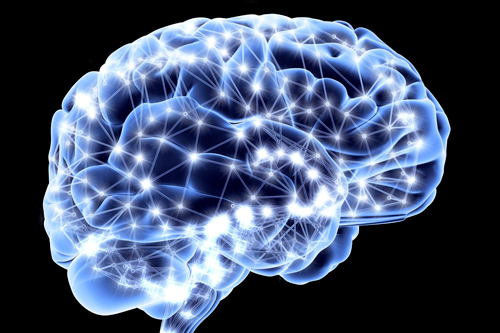 According to the Centers for Disease Control and Prevention, current life expectancy in the United States is about 79 years. Of course, many factors determine life span, and the aging process is accelerated by stress, disease, and trauma, both physical and emotional. But can we reverse the aging process?
According to the Centers for Disease Control and Prevention, current life expectancy in the United States is about 79 years. Of course, many factors determine life span, and the aging process is accelerated by stress, disease, and trauma, both physical and emotional. But can we reverse the aging process?
Findings reported in Genome Journal by Steve Horvath, Ph.D., Sc.D., professor of human genetics and biostatistics at UCLA, show that a type of internal body clock based on DNA can tell us how the aging of different organs may vary. Dr. Horvath examined the DNA of nearly 8,000 samples of both healthy and cancerous cells and tissues and found that diseased tissues may in effect be decades “older” than healthy ones. Cancer, for example, was shown to accelerate the aging process by an average of 36 years.
The key to this variance in aging is methylation, a signaling mechanism in our bodies that prevents expression of certain genes that can be detrimental to cell health. By turning these genes off, methylation helps facilitate embryonic development and maintain the stability of chromosomes. Errors in this process often result in disease, which then can lead to premature aging of parts of the body.
Understanding the role of methylation as a biomarker (a measurable substance that indicates disease, infection, or environmental exposure) in human development, aging, and cancer may help scientists create therapies to rejuvenate diseased organs and tissues. (As Dr. Horvath points out, however, it remains unknown whether the DNA changes he found caused aging or were themselves caused by aging.)
Want Immortality? Become a Hydra
Is there such a thing as an aging gene? Scientists the world over are probing this possibility, and some of the most intriguing findings have been found by studying the Hydra—a water-dwelling animal similar to a jellyfish. This simple creature has one thing going for it: It seemingly lives forever. The key to this death-defying trick is due in part to its reproduction by budding: A new creature develops out of the original one. This process is made possible in the Hydra by continuous production of new stem cells. We have stem cells, too, of course, but we lose our capacity to produce more of them as we age.

Mice typically live only about two years, but suppression of a gene known as mTOR can give them more time to squeak and scurry. Researchers at the National Institutes of Health extended the life span of these rodents by about 20% through this genetic manipulation, which would translate into about 15 more years for a typical human in the U.S. We also possess the mTOR gene (which plays a major role in the metabolism and energy balance of our cells), giving researchers another potential target for increasing the human life span.
Studies show that the so-called FoxO gene, which is present in all animals, may play a role in the aging process. In an experiment, Hydras with an inactivated FoxO gene experienced a reduction in stem cells and compromised immune function. Another clue to the importance of FoxO in aging: It is especially active in humans who are more than 100 years old. Learning how to increase the activating capacity of the FoxO gene may enable humans to produce more stem cells that help slow the aging process.
Another promising route to the Fountain of Youth may be through the use of pluripotent stem cells, which are adult cells that have been genetically altered to become similar to an embryonic stem cell. This alteration is achieved by changing the expression of genes and other factors in adult cells. Learning how to apply this alteration on a wide scale would enable us to, in effect, reset the age of a targeted organ back to zero.
Various studies have shown that genetic differences might be responsible for up to 50% of the variation in human life span. As we gain more understanding of these differences, perhaps our DNA will become more than just the building blocks of life. Maybe it will also unlock the door to eternal life.
Related Reading



